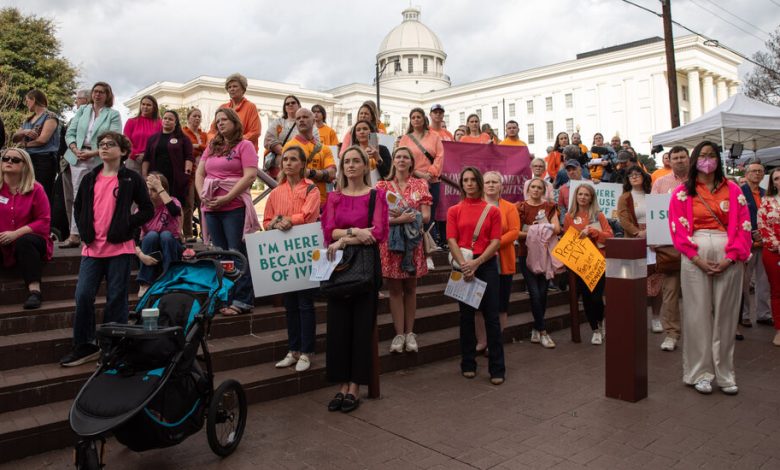Alabama Bill to Protect I.V.F. Will Reopen Clinics but Curb Patient Rights

The Alabama legislature on Wednesday is expected to pass legislation that will make it possible for fertility clinics in the state to reopen without the specter of crippling lawsuits.
But the measure, hastily written and expected to pass by a huge bipartisan margin, does not address the legal question that led to clinic closings and set off a stormy, politically fraught national debate: Whether embryos that have been frozen and stored for possible future implantation have the legal status of human beings.
The Alabama Supreme Court made such a finding last month, in the context of a claim against a Mobile clinic brought by three couples whose frozen embryos were inadvertently destroyed. The court ruled that, under Alabama law, those embryos should be regarded as people, and that the couples were entitled to punitive damages for the wrongful death of a child.
Legal experts said the bill, which Governor Kay Ivey has signaled she will sign, would be the first in the country to create a legal moat around embryos, blocking lawsuits or prosecutions if they are damaged or destroyed.
But though the measure is likely to bring enormous relief to infertility patients whose treatments had been abruptly suspended, it will do so in exchange for limiting their ability to sue when mishaps to embryos do occur. Such constraints in a field of medicine with limited regulatory oversight could make the new law vulnerable to court challenges, the experts said.
Here are answers to some key questions:
What does the measure do?
It creates two tiers of legal immunity. If embryos are damaged or destroyed, direct providers of fertility services, including doctors and clinics, cannot be sued or prosecuted.



